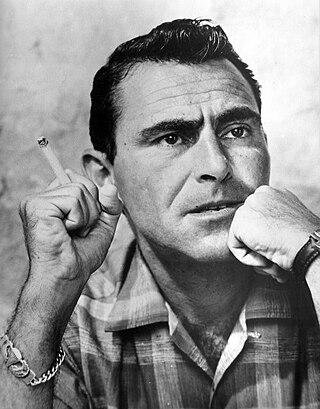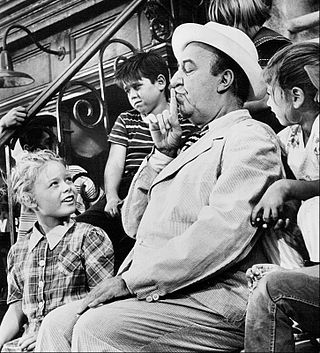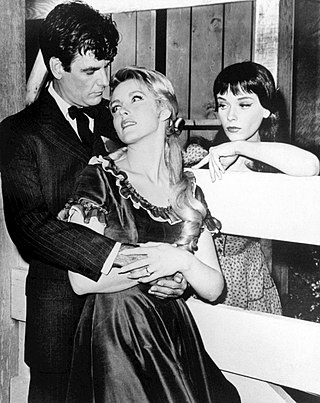Plot
Roger Shackleforth is desperately in love with Leila, an aloof woman who dismisses his affections. A stranger hands him the business card of an old professor named "A. Daemon", who can help with any problem. Roger visits Daemon, who after some resistance and suggestions that Roger will regret it, sells him a love potion for $1. Roger administers it in a glass of champagne; Leila falls madly in love with him and marries him, but soon her love becomes stifling.
Roger returns to the professor to buy poison for $1,000, all of Roger's savings. Daemon cautions Roger that the "glove cleaner" is odorless, tasteless, and completely undetectable, but must be used immediately and completely, or the user will lose his nerve and never again have the courage to try it. After Roger leaves, the professor muses, "First, the 'stimulant'... and then the 'chaser'."
When he gets home, Roger prepares a glass of champagne with the new potion. Just as he is about to give Leila her poisoned drink, she reveals—by showing him baby booties which she is knitting—that she is pregnant; Roger is shocked and drops both glasses. He says that he could not have gone through with it anyway, then passes out.
On Roger and Leila's terrace, Daemon relaxes with a cigar, and after puffing a smoke ring that turns into a heart, disappears.
Production notes
This episode was adapted by Robert Presnell, Jr. from the short story "The Chaser" by John Collier. The script was originally written for and produced live on television on The Billy Rose Television Theatre in 1951.
In Serling: The Rise and Twilight of Television's Last Angry Man, the episode's director Douglas Heyes said, "That was one of the great things about The Twilight Zone. I had total freedom. Sometimes I would think of an idea that would make the episode more Twilight Zone-y [but] that would require some expense. I remember one episode, 'The Chaser', in which I devised a huge bookcase that must have doubled the budget, but [Serling and producer Buck Houghton] never blinked an eye. They just said, 'Okay, great!' I didn't have to argue with anybody over the money—they'd argue about the money and let me have it! I knew that they were having problems with Jim Aubrey, but they kept them away from me. My responsibility was to get the job done."
The short story also was adapted in 1951 for the Tales from the Crypt comic, where it was retitled "Loved to Death!!" This was adapted in 1991 as "Loved to Death" (no exclamation points) for the HBO adult-horror anthology series Tales from the Crypt . The episode starred Andrew McCarthy and Mariel Hemingway.
This is one of several episodes from season one with its opening title sequence plastered over with the opening for season two. This was done during the summer of 1961, so that the repeats of season-one episodes would fit in with the new look the show had taken during the following season. As originally aired, this was the final episode of the series with the original UPA "pit and summit" title sequence.

The Twilight Zone is an American media franchise based on the anthology television series created by Rod Serling in which characters find themselves dealing with often disturbing or unusual events, an experience described as entering "the Twilight Zone". The episodes are in various genres, including fantasy, science fiction, absurdism, dystopian fiction, suspense, horror, supernatural drama, black comedy, and psychological thriller, frequently concluding with a macabre or unexpected twist, and usually with a moral. A popular and critical success, it introduced many Americans to common science fiction and fantasy tropes. The first series, shot entirely in black-and-white, ran on CBS for five seasons from 1959 to 1964.

Rodman Edward Serling was an American screenwriter and television producer best known for his live television dramas of the 1950s and his anthology television series The Twilight Zone. Serling was active in politics, both on and off the screen, and helped form television industry standards. He was known as the "angry young man" of Hollywood, clashing with television executives and sponsors over a wide range of issues, including censorship, racism, and war.

"Where Is Everybody?" is the first episode of the American anthology television series The Twilight Zone and was originally broadcast on October 2, 1959, on CBS. It is one of the most realistic Twilight Zone episodes, as it features no supernatural elements and is based on fairly straightforward extrapolation of science.

"One for the Angels" is the second episode of the American anthology television series The Twilight Zone. It originally aired on October 9, 1959, on CBS television.
"Mr. Denton on Doomsday" is episode three of the American television anthology series The Twilight Zone. It originally aired on October 16, 1959, on CBS. It was the first Twilight Zone episode to be rerun.

"Time Enough at Last" is the eighth episode of the American anthology series The Twilight Zone, first airing on November 20, 1959. The episode was adapted from a short story by Lynn Venable, which appeared in the January 1953 edition of If: Worlds of Science Fiction.
"I Shot an Arrow into the Air" is the fifteenth episode of the American television anthology series The Twilight Zone.
"The Fever" is the seventeenth episode of the American television anthology series The Twilight Zone. It originally aired on January 29, 1960, on CBS. The complete, original text for this story was run in the debut issue of Harvey Kurtzman’s Help!, cover dated August, 1960.
"A Nice Place to Visit" is episode 28 of the American television anthology series The Twilight Zone. The episode first aired on CBS on April 15, 1960. The title comes from the saying, "It's a nice place to visit, but I wouldn't want to live there."
"A World of His Own" is episode thirty-six of the American television anthology series The Twilight Zone. It was the last episode of the show's first season and essentially comedic in tone. It originally aired on July 1, 1960, on CBS.
"The Night of the Meek" is episode 47 of the American television anthology series The Twilight Zone. It originally aired on December 23, 1960, on CBS. It was one of the six episodes of the second season which were shot on videotape in a short-lived experiment aimed to cut costs.
"The Midnight Sun" is episode 75 of the American television anthology series The Twilight Zone, first shown in November, 1961.

"In Praise of Pip" is an episode of the American television anthology series The Twilight Zone. In this episode, after learning that his soldier son has suffered a mortal wound in an early phase of the Vietnam War, a crooked bookie encounters a childhood version of his son.

The Twilight Zone is an American anthology television series which aired from September 27, 1985, to April 15, 1989. It is the first of three revivals of Rod Serling's acclaimed 1959–64 television series, and like the original it featured a variety of speculative fiction, commonly containing characters from a seemingly normal world stumbling into paranormal circumstances. Unlike the original, however, most episodes contained multiple self-contained stories instead of just one. The voice-over narrations were still present, but were not a regular feature as they were in the original series; some episodes had only an opening narration, some had only a closing narration, and some had no narration at all. The multi-segment format liberated the series from the usual time constraints of episodic television, allowing stories ranging in length from 8-minutes to 40-minute mini-movies. The series ran for two seasons on CBS before producing a final season for syndication.
"A Kind of a Stopwatch" is a 1963 episode of the American television anthology series The Twilight Zone. In this episode, a man acquires a stopwatch which can stop time.
The Twilight Zone is a nationally syndicated radio drama series featuring radio play adaptations of the classic 1959–1964 television series The Twilight Zone. The series was produced for the British digital radio station BBC Radio 4 Extra airing for 176 episodes between October 2002 and 2012. In the United States, it aired on nearly 200 radio stations including WCCO, KSL, KOA, WIND, XM Satellite Radio channel 163 and Sirius XM Book Radio. Most of the stations aired two episodes each week, usually on the weekends and many times back to back.

The Twilight Zone is an American fantasy science fiction horror anthology television series created and presented by Rod Serling, which ran for five seasons on CBS from October 2, 1959, to June 19, 1964. Each episode presents a standalone story in which characters find themselves dealing with often disturbing or unusual events, an experience described as entering "the Twilight Zone", often with a surprise ending and a moral. Although often considered predominantly science-fiction, the show's paranormal and Kafkaesque events leaned the show much closer to fantasy and horror. The phrase "twilight zone" has entered the vernacular, used to describe surreal experiences.
"I Sing the Body Electric" is episode 100 of the American television anthology series The Twilight Zone. The 1962 script was written by Ray Bradbury, and became the basis for his 1969 short story of the same name, itself named after an 1855 Walt Whitman poem. Although Bradbury contributed several scripts to The Twilight Zone, this was the only one produced.

"Jess-Belle" is an episode of the American television science fiction and fantasy anthology series The Twilight Zone. In this episode, a young woman, whose name sounds like "Jezebel", spurned by the man she loves, becomes a witch in order to make him love her.
"Mr. Garrity and the Graves" is an episode of the American anthology television series The Twilight Zone.









